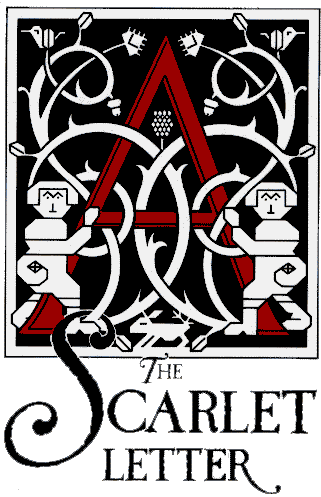carmen-第13部分
按键盘上方向键 ← 或 → 可快速上下翻页,按键盘上的 Enter 键可回到本书目录页,按键盘上方向键 ↑ 可回到本页顶部!
————未阅读完?加入书签已便下次继续阅读!
I get him back for you?〃 My readers will imagine with what joy the proposal was accepted; and how complete was the confidence inspired by a person who could thus guess the inmost secrets of the heart。 As it would have been impossible to proceed to perform the operations of magic in the most crowded street in Madrid; a meeting was arranged for the next day。 〃Nothing will be easier than to bring back the faithless one to your feet!〃 said the gitana。 〃Do you happen to have a handkerchief; a scarf; or a mantilla; that he gave you?〃 A silken scarf was handed her。 〃Now sew a piastre into one corner of the scarf with crimson silksew half a piastre into another cornersew a peseta hereand a two…real piece there; then; in the middle you must sew a gold coina doubloon would be best。〃 The doubloon and all the other coins were duly sewn in。 〃Now give me the scarf; and I'll take it to the Campo Santo when midnight strikes。 You come along with me; if you want to see a fine piece of witchcraft。 I promise you shall see the man you love to…morrow!〃 The gipsy departed alone for the Campo Santo; since my Spanish friend was too much afraid of witchcraft to go there with her。 I leave my readers to guess whether my poor forsaken lady ever saw her lover; or her scarf; again。
In spite of their poverty and the sort of aversion they inspire; the gipsies are treated with a certain amount of consideration by the more ignorant folk; and they are very proud of it。 They feel themselves to be a superior race as regards intelligence; and they heartily despise the people whose hospitality they enjoy。 〃These Gentiles are so stupid;〃 said one of the Vosges gipsies to me; 〃that there is no credit in taking them in。 The other day a peasant woman called out to me in the street。 I went into her house。 Her stove smoked and she asked me to give her a charm to cure it。 First of all I made her give me a good bit of bacon; and then I began to mumble a few words in /Romany/。 'You're a fool;' I said; 'you were born a fool; and you'll die a fool!' When I had got near the door I said to her; in good German; 'The most certain way of keeping your stove from smoking is not to light any fire in it!' and then I took to my heels。〃
The history of the gipsies is still a problem。 We know; indeed; that their first bands; which were few and far between; appeared in Eastern Europe towards the beginning of the fifteenth century。 But nobody can tell whence they started; or why they came to Europe; and; what is still more extraordinary; no one knows how they multiplied; within a short time; and in so prodigious a fashion; and in several countries; all very remote from each other。 The gipsies themselves have preserved no tradition whatsoever as to their origin; and though most of them do speak of Egypt as their original fatherland; that is only because they have adopted a very ancient fable respecting their race。
Most of the Orientalists who have studied the gipsy language believe that the cradle of the race was in India。 It appears; in fact; that many of the roots and grammatical forms of the /Romany/ tongue are to be found in idioms derived from the Sanskrit。 As may be imagined; the gipsies; during their long wanderings; have adopted many foreign words。 In every /Romany/ dialect a number of Greek words appear。
At the present day the gipsies have almost as many dialects as there are separate hordes of their race。 Everywhere; they speak the language of the country they inhabit more easily than their own idiom; which they seldom use; except with the object of conversing freely before strangers。 A comparison of the dialect of the German gipsies with that used by the Spanish gipsies; who have held no communication with each other for several centuries; reveals the existence of a great number of words common to both。 But everywhere the original language is notably affected; though in different degrees; by its contact with the more cultivated languages into the use of which the nomads have been forced。 German in one case and Spanish in the other have so modified the /Romany/ groundwork that it would not be possible for a gipsy from the Black Forest to converse with one of his Andalusian brothers; although a few sentences on each side would suffice to convince them that each was speaking a dialect of the same language。 Certain words in very frequent use are; I believe; common to every dialect。 Thus; in every vocabulary which I have been able to consult; /pani/ means water; /manro/ means bread; /mas/ stands for meat; and /lon/ for salt。
The nouns of number are almost the same in every case。 The German dialect seems to me much purer than the Spanish; for it has preserved numbers of the primitive grammatical forms; whereas the Gitanos have adopted those of the Castilian tongue。 Nevertheless; some words are an exception; as though to prove that the language was originally common to all。 The preterite of the German dialect is formed by adding /ium/ to the imperative; which is always the root of the verb。 In the Spanish /Romany/ the verbs are all conjugated on the model of the first conjugation of the Castilian verbs。 From /jamar/; the infinitive of 〃to eat;〃 the regular conjugation should be /jame/; 〃I have eaten。〃 From /lillar/; 〃to take;〃 /lille/; 〃I have taken。〃 Yet; some old gipsies say; as an exception; /jayon/ and /lillon/。 I am not acquainted with any other verbs which have preserved this ancient form。
While I am thus showing off my small acquaintance with the /Romany/ language; I must notice a few words of French slang which our thieves have borrowed from the gipsies。 From /Les Mysteres de Paris/ honest folk have learned that the word /chourin/ means 〃a knife。〃 This is pure /Romany//tchouri/ is one of the words which is common to every dialect。 Monsieur Vidocq calls a horse /gres/this again is a gipsy word/gras/; /gre/; /graste/; and /gris/。 Add to this the word /romanichel/; by which the gipsies are described in Parisian slang。 This is a corruption of /romane tchave/〃gipsy lads。〃 But a piece of etymology of which I am really proud is that of the word /frimousse/; 〃face;〃 〃countenance〃a word which every schoolboy uses; or did use; in my time。 Note; in the first place; the Oudin; in his curious dictionary; published in 1640; wrote the word /firlimouse/。 Now in /Romany/; /firla/; or /fila/; stands for 〃face;〃 and has the same meaningit is exactly the /os/ of the Latins。 The combination of /firlamui/ was instantly understood by a genuine gipsy; and I believe it to be true to the spirit of the gipsy language。
I have surely said enough to give the readers of Carmen a favourable idea of my /Romany/ studies。 I will conclude with the following proverb; which comes in very appropriately: /En retudi panda nasti abela macha/。 〃Between closed lips no fly can pass。〃
End



